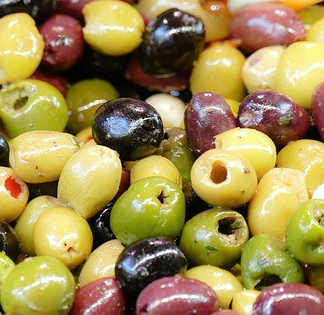The world of culinary oils has seen a surge in popularity and variety, with health-conscious consumers seeking out alternatives to traditional cooking oils. Two such contenders, extra virgin olive oil and avocado oil, have emerged as highly touted options, each possessing unique qualities and benefits.
In this article, we will conduct an in-depth exploration of why olive oil is better than avocado oil, considering various aspects such as nutritional content, flavor profile, cooking applications, and environmental impact.

Nutritional Content
Extra virgin olive oil boasts a rich nutritional profile that has been celebrated for centuries. It is renowned for its high monounsaturated fat content, primarily in the form of oleic acid, which has been linked to numerous health benefits.
Monounsaturated fats are known to promote heart health by reducing LDL (bad) cholesterol levels and enhancing HDL (good) cholesterol levels, thereby lowering the risk of cardiovascular diseases.
In comparison, avocado oil also contains monounsaturated fats, but its overall fatty acid composition is more variable, making it slightly less consistent in its health benefits.
While avocado oil contains a higher smoke point than extra virgin olive oil, enabling it to endure higher heat, this advantage is offset by its relatively lower monounsaturated fat content.
Lower grade refined olive oils, such as pure olive oil and light olive oil, have higher smoke points that rival or exceed avocado oil’s smoke point, however the lower grades of olive oil lack the powerful health benefits of extra virgin olive oil.
Flavor Profile
Extra virgin olive oil’s distinct flavor is a key factor contributing to its popularity. Its rich, fruity, and sometimes peppery taste adds depth to a wide range of dishes, from salads to pasta and beyond.
The diverse range of olive oil varieties, such as extra virgin, virgin, light and refined (pure), allows for culinary experimentation and enhances the overall dining experience.
For me, extra virgin olive oil has a better utility benefit than avocado oil. Extra virgin olive oil is more flavorful, and that makes it great to drink straight for the health benefits.
On the other hand, avocado oil possesses a milder, neutral flavor that can sometimes be overshadowed by other ingredients. While this neutrality can be an advantage in certain recipes where the oil’s taste should not dominate, it lacks the nuanced complexity that olive oil brings to the table.

Cooking Applications
Both pure olive oil and avocado oil have high smoke points, making them suitable for various cooking methods, including sautéing, roasting, and frying.
However, olive oil’s broader range of flavor profiles, particularly in extra virgin and virgin varieties, makes it the ideal choice for drizzling over salads or dipping bread.
Extra virgin olive oil’s ability to enhance dishes as both a cooking medium and a finishing touch sets it apart from avocado oil. Avocado oil tends to be relegated to being a cooking medium due to its neutral taste.
If you are looking for a flavorful addition to your dishes, I suggest that you try small bottles of cold pressed, extra virgin olive oil. After you find an EVOO that you like, then try cold pressed, extra virgin, Moroccan olive oil. You should then be able to distinguish the superior quality of Moroccan EVOO.
Environmental Impact
From an environmental perspective, olive oil firmly holds the upper hand over avocado oil. Avocado farming, particularly in regions like Mexico and South America, has raised concerns due to deforestation, water scarcity, and excessive pesticide use.

The demand for avocados has led to the conversion of ecologically sensitive areas into agricultural land, resulting in negative impacts on local ecosystems and adds to the threat of Global Warming.
In contrast, olive oil production, particularly in Mediterranean countries like Morocco, Spain, Italy, and Greece, has a longstanding history that is deeply intertwined with sustainable farming practices. These regions prioritize the preservation of their natural landscapes and biodiversity, often employing traditional methods that have minimal environmental impact and offer safer working conditions.
Summary
While both olive oil and avocado oil have their merits, a comprehensive analysis reveals that olive oil emerges as the superior choice in terms of nutritional content, flavor profile, cooking versatility, and environmental impact. Olive oil’s rich monounsaturated fat content, high polyphenol content, distinct flavor, and historical connection to sustainable farming practices make it a compelling option for health-conscious individuals and culinary enthusiasts alike.
As we continue to prioritize our well-being and the well-being of the planet, opting for olive oil over avocado oil is a decision that aligns with both our personal and collective interests globally.
Humans may or may not be responsible for Global Warming, but creating a need for avocado oil is definitely not in the best interest of our planet’s plants, trees and atmosphere.
If you purchase Atlas EVOO through my site, I make a small commission from Amazon. That is not the reason that I have it on my website. I am trying to save you precious time and money in finding the best, reasonably priced, cold pressed extra virgin olive oil from Morocco.
In my opinion, the best EVOO is Morocco Gold, but it’s a little bit pricey compared to Atlas, and there’s not much difference between the two. God Bless, and I hope that you find an olive oil that brings you health and longevity.
Please consult a medical professional prior to making any changes to your diet or food intake.
Please leave a comment, question or suggestion below.
Tom – Olive Oil Lover


